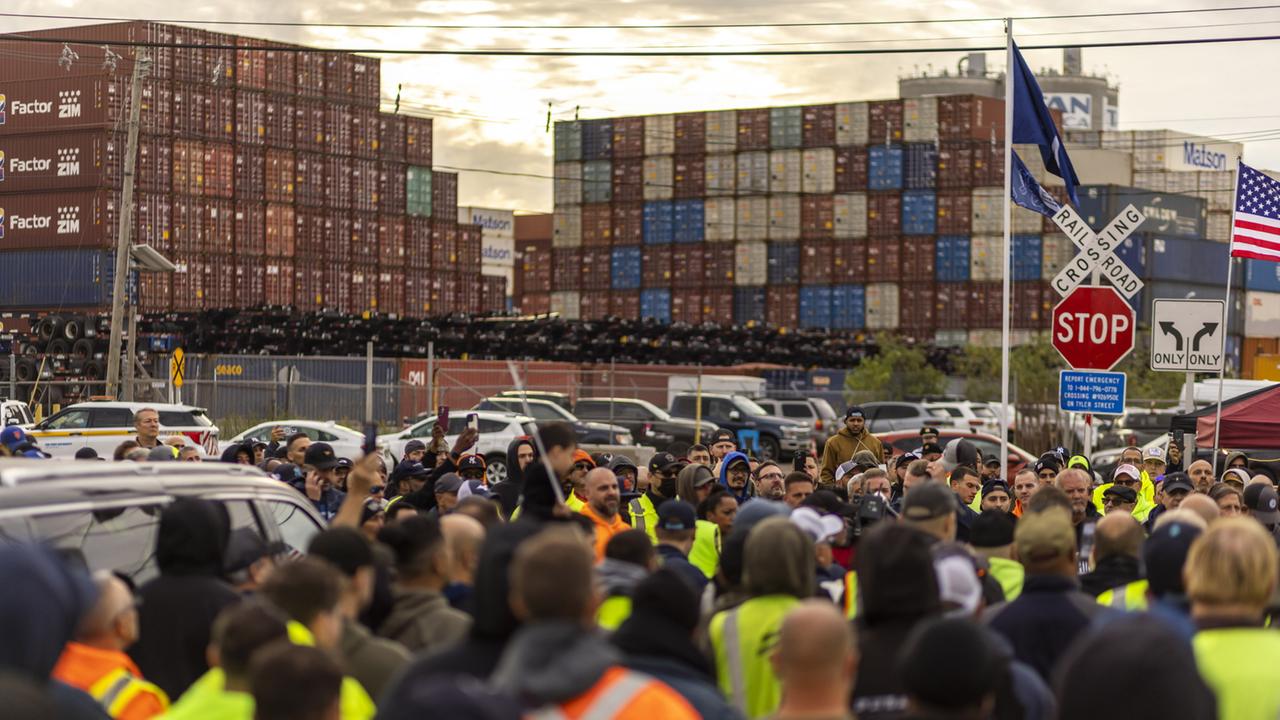Many containers were no longer unloaded in the USA for three days. Tens of thousands of dock workers stopped working on the east coast. There is now a provisional agreement in the collective bargaining dispute.
Tens of thousands of port workers on the US East Coast stopped their strike after a few days. The term of the current contract has been extended until January 15th in order to continue negotiations, as the ILA union announced. The large-scale work stoppage just a few weeks before the US presidential election had sparked concerns about delivery bottlenecks.
“The strike is over,” local union leader Scott Cowan told CBS in Baltimore. According to him, the union wants to accept the offer of an income increase of 61.5 percent over the six-year term of the contract. In addition, measures are to be negotiated in the coming months to prevent job losses due to automation.
The workers went on strike on the night of October 1st. Even a new employer offer with an income increase of almost 50 percent didn't stop her.
Strike resulted in panic buying
In the United States, the strike triggered panic buying of toilet paper. Buyers reported on online platforms about empty shelves or dwindling supplies in large stores such as Walmart or Costco – very similar to what happened at the beginning of the Corona crisis. More than 90 percent of the toilet paper sold in the USA is produced in the country itself.
The US government also called on the parties to quickly reach an agreement and end the strike to prevent food loaded in containers from spoiling. Among other things, a large proportion of the bananas sold in the USA reach the country via East Coast ports.
High costs due to strike
Around half of the container throughput in US foreign trade is handled via the East Coast ports. The strike by tens of thousands of members of the International Longshoremen's Association (ILA) union may have cost hundreds of millions of dollars a day. In addition, it takes seven to ten days per strike day to reduce the traffic jams in the ports, said the head of the logistics company Flexport, Ryan Petersen, to the TV station CNBC.
Since the strike had been foreseeable for months, many companies built up stocks for at least a few weeks. The ILA members load and unload ships and are responsible for maintaining the port technology. The union points to the billions in profits in container shipping. According to the Wall Street Journal, she demanded a 77 percent increase in income in the negotiations.




